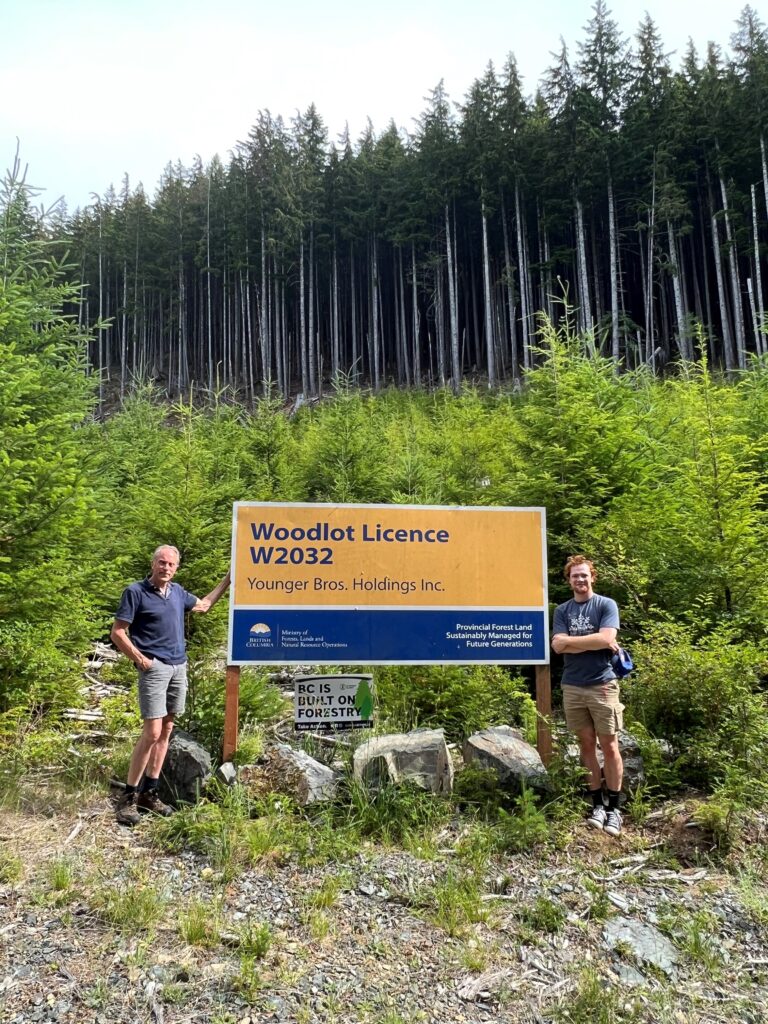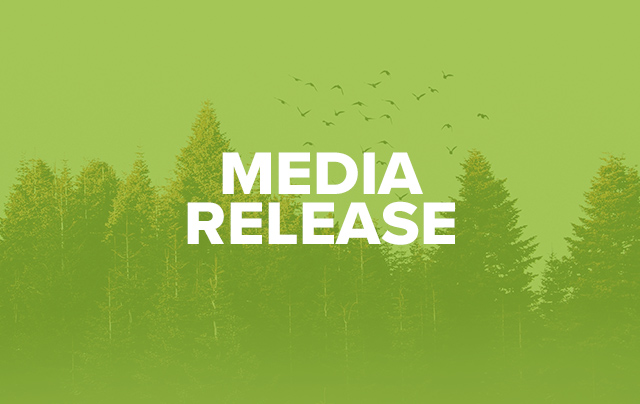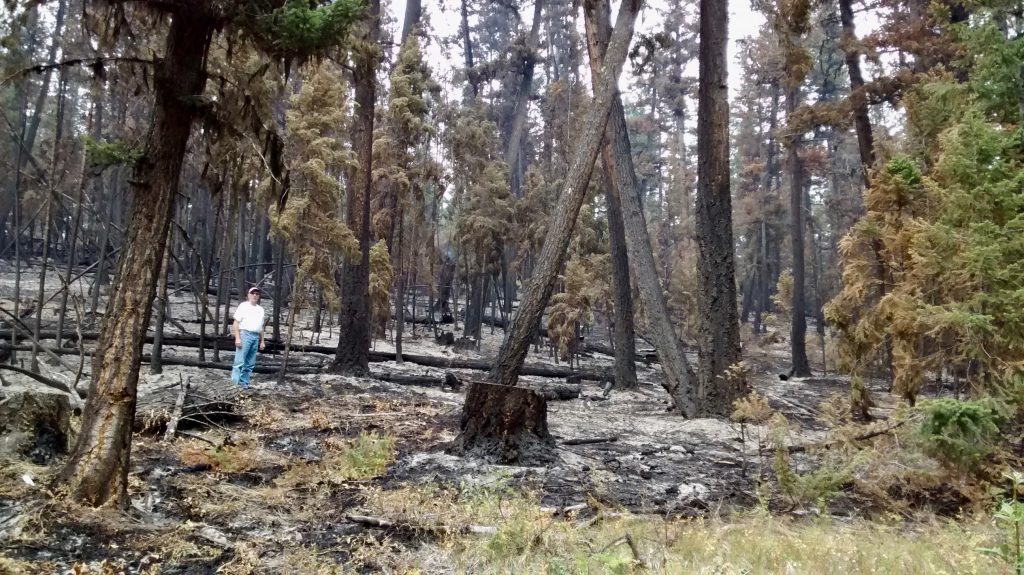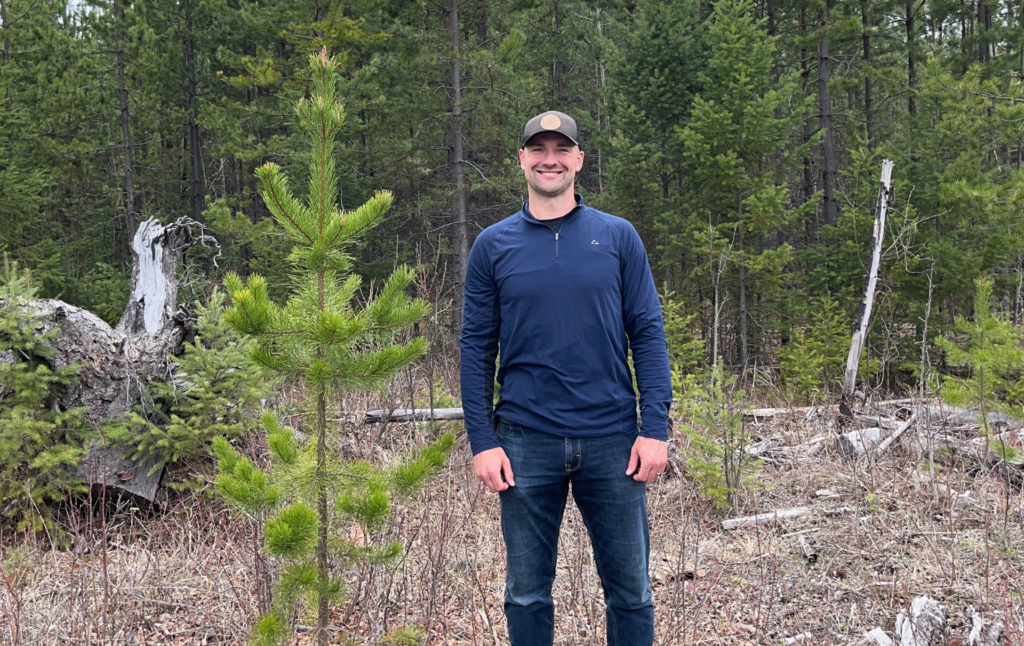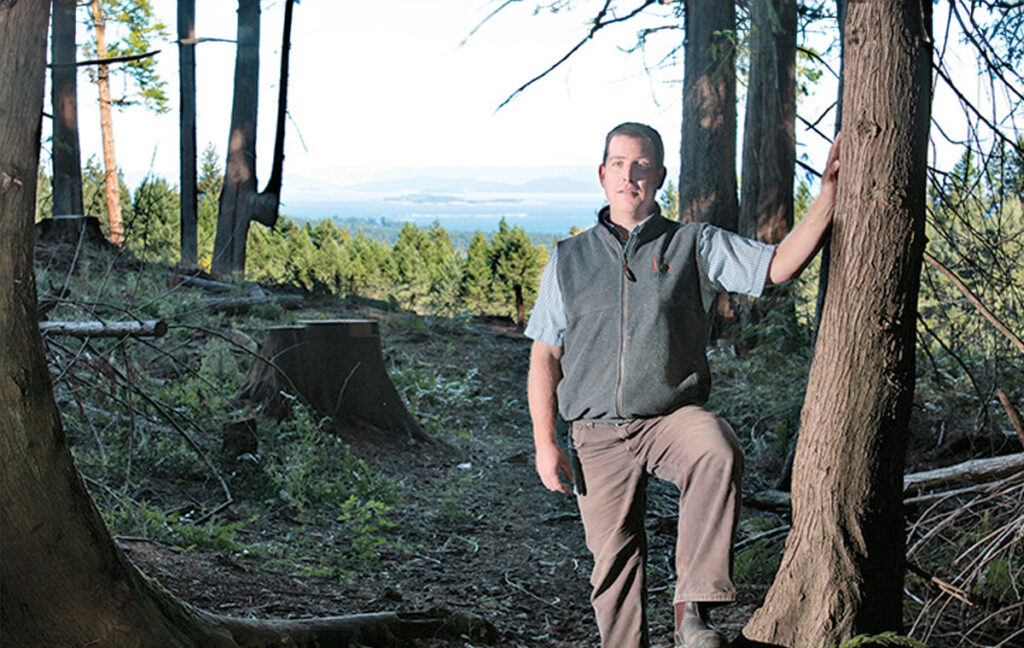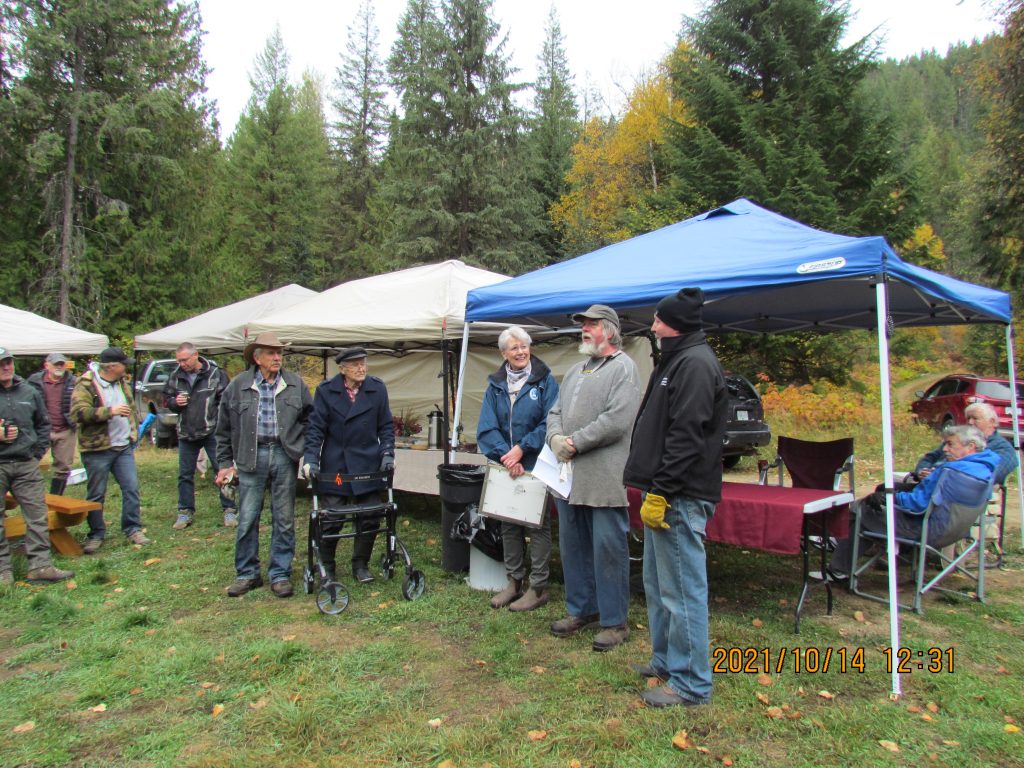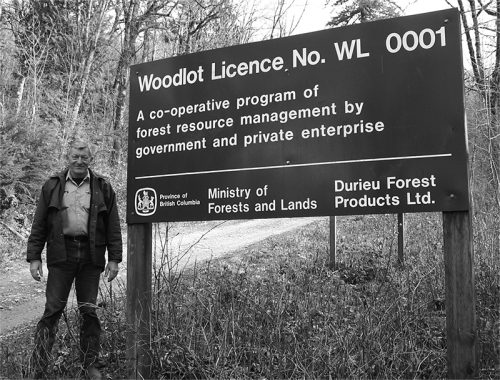This article was first published in the Fall 2023 edition of BC Forest Professional. Online at
www.fpbc.ca/practice-resources/bc-forest-professional-magazine.
By Mike Hall
Tom Younger knew he wanted to apply his passions as a professional forester, and that he wanted an
adventure. Raised on ecologically and culturally diverse West Coast islands, he figured where better to
learn and explore than the University of Northern British Columbia (UNBC), with its campus embedded
in the emerald forest above Prince George and outdoor labs at the nearby Aleza Lake and John Prince
research forests.
“These are the specialties of the UNBC forestry program,” says Younger, a forester in training (FIT) and
former ForesTrust scholarship winner. “On top of that, the thought of learning forestry in downtown
Vancouver, as rural BC guy, didn’t call me.”
Younger grew up on Haida Gwaii and Quadra Island; his father, a forester, owns woodlots on both.
Younger recalls taking guide books to the beach at low tide with his dad and brother to inspect moss —
step and electrified cat’s tail. They would take their books to the forests as well.
“I was very lucky, growing up like that. You get exposed to a lot of forestry enforcement law. Quadra’s
all about small-scale forestry,” says Younger, who now works there for Huock Resource Consultants,
managing woodlots throughout northern and southern Vancouver Island.
“Ecology and biology have been a passion of mine since I was very young, and I wanted to find a way to
make it my career,” he adds. “Registration as a forest professional allowed me to find a niche where I
can use my skills. Everyone I work with today is just as passionate as I am.”
Younger graduated from UNBC in 2022 and received the Forest Professionals British Columbia Award for
Excellence, a $2,000 scholarship from ForesTrust given annually to a full-time undergraduate student in
the Natural Resources and Environmental Studies program.
ForesTrust is the registered charity of Forest Professionals British Columbia (FPBC). It provides
scholarships and bursaries to forestry students through 13 awards at nine accredited, post-secondary
institutions in BC.
“I am very thankful to have been selected for the scholarship as it helped relieve the financial burden
that comes with university,” Younger says. “It provided me the opportunity to focus on my studies and
pursue my passions.”
His experience as an FIT, so far, has come with expected challenges, but support and supervision have
helped.
“Adjusting to life as a professional is a big one. Performing quality work was a change from being a
summer student,” Younger says. “The sheer volume of new concepts has been challenging. Seven
months later, though, I feel as though I am starting to swim instead of sink.”
He still has a way to go.
Forestry at UNBC
UNBC forestry has come a long way.
Dr. Kathy Lewis, RPF, was one of the first 40 faculty members hired by UNBC before it opened in 1994,
and is now interim dean for the school’s faculty of environment, as well as interim vice-president of
research and innovation, and a professor. Lewis is also former chair of the accredited Forest Ecology and
Management degree program.
“At the time, it was probably the only program in the world that only had women in it because there
were just two of us,” says Lewis — her and Winifred “Wini” Kessler, the first program chair.
“I think, right from the start, we had a strong interest in the management aspects of natural resources.
Our focus was less on the harvesting and processing of forest products and more on the ecology of the
forest and how to sustainably manage it. There’s much more in a forest than just the trees we want to
harvest for wood products,” Lewis adds.
“At the time we were first designing the degree, climate change was known, but it certainly wasn’t at
the tip of everyone’s tongue like it is now. And we weren’t seeing the tremendous ramifications of the
climate change problems like the pine beetle outbreaks and the wildfires right now.”
UNBC had to adapt, teaching more about disturbance ecology and forest health, with a focus on issues
such as climate change, wildfires, and insect infestation.
The changes are also reflected in the students who want to study forestry.
“The profession itself has gone through some ups and downs, which is kind of typical of a resource-
based profession,” Lewis adds. “I think, probably, our earlier students were thinking about forestry in a
traditional way, and that was managing the forest sustainably for the goal of producing products.”
Forestry students today are more interested in understanding the role of forest ecosystems in carbon
sequestration and helping with climate change mitigation, says Lewis.
“They’re recognizing that forestry isn’t just a terminal degree to a specific career path. It actually opens
doors to many other types of careers in graduate education. So I think that’s one of the reasons we’re
maintaining relatively strong enrolment.”
Lewis stresses, however, that staying in forestry is as important as ever.
“I would say it’s a critically important profession right now. I would also say that forests can provide so
much more than wood products, and we’re really starting to understand that now and many start-up
companies and other companies are getting into producing things other than commodity wood and pulp
products… we need folks who really understand that so we can get some of those wood products.”
In Forests We Trust
Lewis helped select ForesTrust winners as a chair of the forestry program, and maintains that
scholarships and bursaries are vital.
“We have students coming into university degrees from all walks of life and many of them don’t have
the resources they may need to get through an entire degree without having scholarships and bursaries available to them. Especially now. Housing costs are just going through the roof and inflation is affecting
our students. We don’t want to have the only people who can afford to come to university being those
that have the privilege of having more income available to them. We want to make sure that university
is accessible to everyone. And that really is a huge role for the scholarships and bursaries.”
Faculty members are consulted on scholarship and bursary winners.
“One of the primary criteria we use is the performance of the students in their classes,” says Dr. Ken
Otter, a UNBC professor, chair of the Department of Ecosystem Science and Management, and chair of
the Forest Ecology and Management Curriculum Committee.
All Forest Ecology and Management students have to complete either a professional report or an
undergraduate thesis, usually undertaken in their final year. Younger opted for the thesis. He earned A+
grades in his independent studies was considered exceptional by his respective supervisors, says Otter.
“I recall that Tom was also very active in our Forestry Club.”
Younger has about 18 months remaining to get his RPF accreditation. Afterwards, he plans to pursue
small-scale forestry. “Quadra really pushed me in that direction.” Quadra has 11 woodlots, all of which
are unique.
“The topography and elevation changes are just incredible,” Younger says. “We’ve got lots of western
hemlock, but you don’t have Douglas-fir or western redcedar or anything. And so what we’re doing in
converting it back to what the stumps were previously, before they were logged, and dealing with some
of the forest health issues, as well.”
He has found his calling.
Author Bio:
Mike Hall is a senior communications specialist with Forest Professionals British Columbia and is a
former journalist and editor.
Note from Woodlots BC: Tom Younger was one of the 2018 scholarship recipients of the Federation of BC Woodlot Associations.


